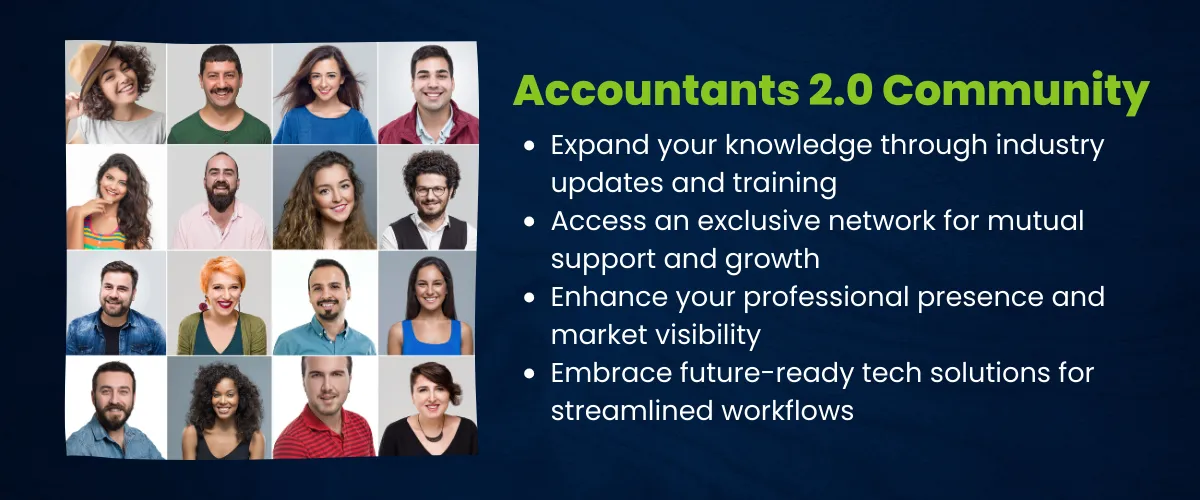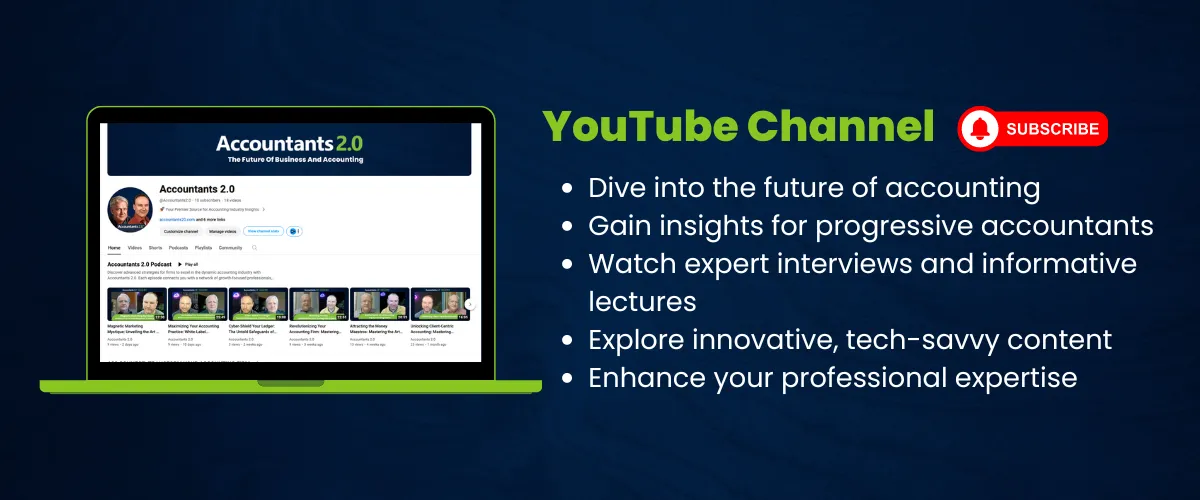Elevate Your Firm: Expert Insights and Strategies
Unlock growth and streamline operations with the latest industry news and our expert strategies, tailored specifically for accounting and bookkeeping firm owners. Explore our selection of articles packed with actionable insights to enhance your firm’s efficiency and client relations, ensuring you stay competitive in today's fast-evolving financial landscape.

Step 5: Cybersecurity is Not Just a Policy Term - It is a Lifestyle
Cybersecurity threats are omnipresent across all business categories. For new age accountants in particular, it is critical. One incident of being hacked could irreparably damage your brand. Especially if there is evidence that you did not perform due diligence to a level that is above industry standard.
Because of the serious nature of this topic, you need to have a robust plan documented and in a best case scenario (depending on your firm size and budget) have it reviewed by an accredited security consultant.
Your plan should include the following:
1. Perform a Risk Assessment:
Begin by assessing your current systems and identifying potential vulnerabilities. Understand the types of sensitive data you handle, including client financial information, and assess the risks associated with each type.
2. Implement Data Encryption:
Encrypt all sensitive data, both in transit and at rest. This includes emails, databases, and any other storage systems used to handle client information.
3. Secure All Networks:
Ensure your network is secure by using firewalls, secure Wi-Fi connections, and VPNs (Virtual Private Networks) for remote access. Regularly update and patch your systems to prevent known vulnerabilities from being exploited.
4. All Users Follow a Strict Access Control and Authentication Policy:
Implement strict access controls. Use strong, unique passwords or consider multifactor authentication (MFA) for added security. Limit access to sensitive data on a need-to-know basis, and regularly review and revoke access when employees leave or change roles
5. Established Verified Employee Training
Train all employees on cybersecurity best practices, including how to identify phishing attempts, social engineering attacks, and the importance of keeping software updated. All employees should sign off that they understood the training and are accountable.
6. Conduct / Schedule Regular Backups:
Maintain regular backups of all critical data. This ensures that even if there's a security breach, you can restore the data without significant loss.
7. Maintain Compliance with Regional and Industry Regulations:
Stay updated with data protection regulations such as GDPR, HIPAA, or other relevant laws. Ensure that your cybersecurity protocols align with these regulations to avoid legal repercussions.
8. Document an Incident Response Plan:
Develop and regularly update an incident response plan. This plan should outline steps to be taken in case of a security breach, including who to contact, how to contain the breach, and how to mitigate the damages.
9. Establish a Strict Vendor Management and Vetting Policy:
If you use third-party vendors or cloud services, ensure they have robust security measures in place. Regularly audit these vendors to confirm their compliance with your security standards.
10. Schedule Regular Audits and Assessments:
Conduct regular cybersecurity audits and assessments to identify any weaknesses or areas that need improvement.
11. All Channel Encryption and Secure Communication:
Ensure that all communication channels, including emails and messaging systems, are encrypted to protect sensitive client information during transmission
12. Create a Culture of Continuous Improvement:
Cyber threats evolve constantly. Stay updated on the latest cybersecurity trends, invest in new technologies, and adapt your protocols accordingly to stay ahead of potential risks.
Cybersecurity is an ongoing process rather than a one-time task. Regularly reviewing and updating your protocols is crucial to staying ahead of potential threats and safeguarding client information effectively.
Take action to secure your business in the digital age. Implement comprehensive cybersecurity measures and join the proactive community of new age accountants - Accountants 2.0 Group. Safeguard your brand and client trust—embrace cybersecurity as a vital part of your business lifestyle.
➡️ Subscribe, Follow, and Connect with us on Social Media:
Facebook Group "Growth and Operations: Modern Accountants, Bookkeepers, Tax Pros, & Advisor"
Stay Connected: Explore Our Multimedia Resources
Dive into our dynamic collection of multimedia resources designed to keep you informed and engaged. From insightful podcasts and informative YouTube videos to our vibrant community discussions, there's a wealth of knowledge waiting for you.
Stay up-to-date and deepen your understanding with us!
Follow us on
social media!
Want to follow us on Facebook, Instagram and LinkedIn? Click on the links to follow our journey!
Community dedicated to your success


© 2023 Accountants 2.0. All Rights Reserved.







